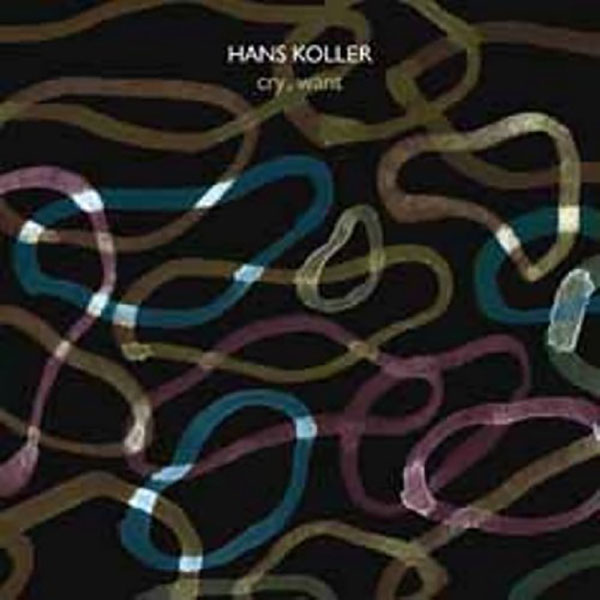
by Ian Mann
April 22, 2011
/ ALBUM
This rich, colourful, beautifully crafted music discloses something fresh with each new listening.
Hans Koller
“Cry, Want”
(Psi Records psi 10.08)
Pianist, composer and arranger Hans Koller was born in Landshut, Germany in 1970 and moved to the UK in 1991. Although based in London Koller also teaches at the Birmingham Conservatoire and is a significant presence on the British jazz scene.
I first encountered his playing in 2007 at a concert held at St. George’s, Bristol, one of a series of tour dates celebrating the 70th birthday of the distinguished jazz composer Mike Gibbs. Many of the musicians who appeared on that tour also play on this new large ensemble album from Koller, among them the great American guitarist Bill Frisell. Koller has also secured the services of another star guest, Psi label owner Evan Parker who adds his distinctive soprano saxophone to two of the album’s eight cuts.
The full line-up consists of;
Percy Pursglove (trumpet), Robbie Robson (trumpet), Jim Rattigan (French horn), Mark Nightingale (trombone), Sarah Williams (bass trombone), Finn Peters (alto saxophone), Robin Fincker (tenor saxophone & clarinet), Hans Koller (electric piano), Bill Frisell (guitar), Dave Whitford (double bass), Jeff Williams (drums), plus Evan Parker (soprano saxophone). It’s a veritable who’s who of contemporary British jazz, with many of the musicians also appearing with the Koller led Pizza Express Jazz Orchestra.
This is Koller’s fourth large ensemble/big band album and although his writing owes much to the style of his mentor Gibbs with its rich textures and unusual horn voicings Koller is still very much his own man. “Cry, Want”, which takes its title from an old Jimmy Guiffre tune, one of two non originals in the set, has garnered considerable critical acclaim and rightly so. Koller’s writing and arrangements are imaginative and colourful throughout and the music is superbly performed by the all star line-up with solos distributed democratically around the cast.
The opening “Nocturne” quickly establishes the ensemble sound with muted brass mingling with Frisell’s chameleon like guitar lines and Koller’s electric piano. Appropriately it’s Koller who takes the first solo followed by a rare solo outing from Jim Rattigan who demonstrates the flexibility of the French horn, a rarely heard jazz solo instrument. Finally there’s a concise statement from the talented young trumpeter Robbie Robson. This is a surprisingly understated opener but a good overview of the subtleties of the luxurious Koller ensemble sound which also draws its inspiration from Gil Evans and “Birth Of The Cool” era Miles Davis.
The gently shuffling “Farewell” features beautiful interplay between Frisell’s guitar and Koller’s electric piano. Again the composer takes the first solo, followed this time by the blues inflected sound of trombonist Mike Nightingale. But it’s the care and precision of the ensemble arrangements that really impress with Jeff Williams’ deftness at the drum kit particularly noteworthy for its subtle use of colours and accents.
The good natured “Riff Raff” is slyly funky with another fluent solo from Nightingale followed by Frisell at his most conventionally jazzy. The piece concludes with a fiendishly tricky but still funky and invigorating ensemble section.
“Estuary” is a lovely ballad dominated by the crystalline sound of Frisell’s guitar and featuring almost painfully delicate arrangements for brass and reeds. It’s a beautifully restrained and disciplined ensemble performance with every note being made to count.
The brief “Hermetique” sees the reeds coming into their own as Parker duets with Robin Fincker’s clarinet, the pair’s writhing, sinuous, intertwining lines cushioned by a sumptuous brass backdrop.
The second outside piece, Charlie Parker’s “Quasimodo” swings quietly and begins as a feature piece for Frisell and bassist Dave Whitford. The tune also includes a typically imaginative ensemble arrangement.
The lengthy “Reunion” is one of the most ambitious pieces on the record embracing a variety of themes and tempos. There are moments here where the ensemble really get the chance to bare their collective teeth. Koller’s Birmingham based colleague, multi instrumentalist Percy Pursglove solos lengthily and fluently on trumpet with the baton eventually passing to Fincker, this time on tenor. The saxophonist digs deep, throwing in the occasional quote and sparring spiritedly with the rhythm section and Frisell. By way of contrast Finn Peters’ impassioned alto solo appears against a stirring brass backdrop as the ensemble cuts loose for the first time.
Koller’s impressive arrangement of Guiffre’s title track incorporates lengthy statements from his two star soloists. Guiffre’s piece was originally recorded by the composer in 1960 with his drummerless trio incorporating pianist Paul Bley and bassist Steve Swallow. Koller’s arrangement expands the piece to epic proportions, a dramatic, smouldering slow burner that includes richly textured ensemble passages alongside stunning solos from Frisell and Parker. Frisell is at his idiosyncratic best, his sound a uniquely patent mix of jazz and Americana. Parker’s solo is sparse, blues inflected and possesses a subtle bite. A brief coda featuring Frisell’s haunting unaccompanied guitar represents a last minute decision by Koller but a highly effective one. Admirable as the original material is there can be no doubt that this is the album’s outstanding cut. On hearing this it becomes clear exactly why Koller chose this as the album title. It’s a beautiful homage to the departed Guiffre and a brilliant example of Koller’s arranging skills.
“Cry, Want” isn’t an album that shouts for your attention. It’s a record that slowly reveals it’s secrets but this rich, colourful, beautifully crafted music discloses something fresh with each new listening. Koller has produced an immaculate album that is sure to be up there in the subsequent “best of year” lists.
blog comments powered by Disqus